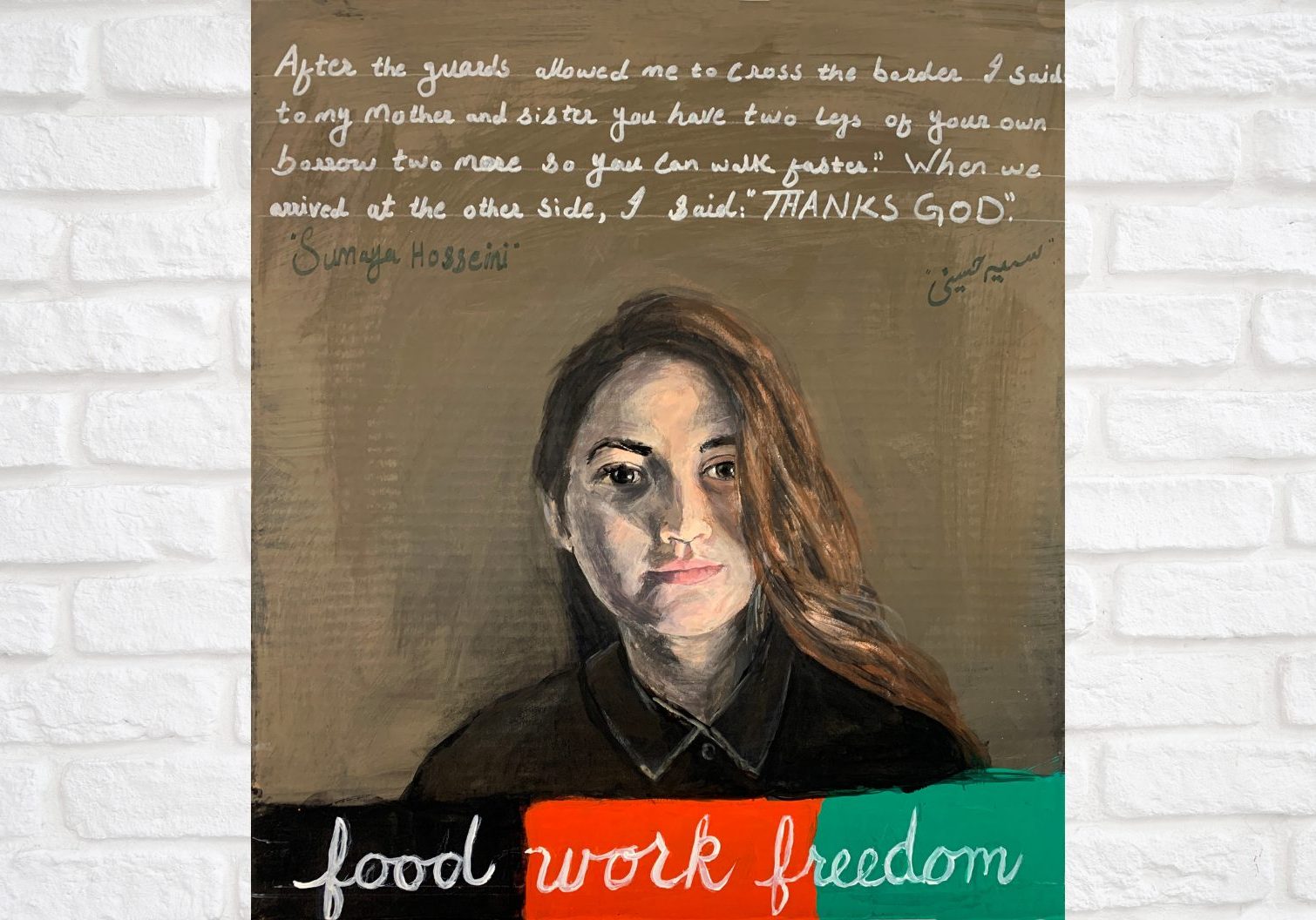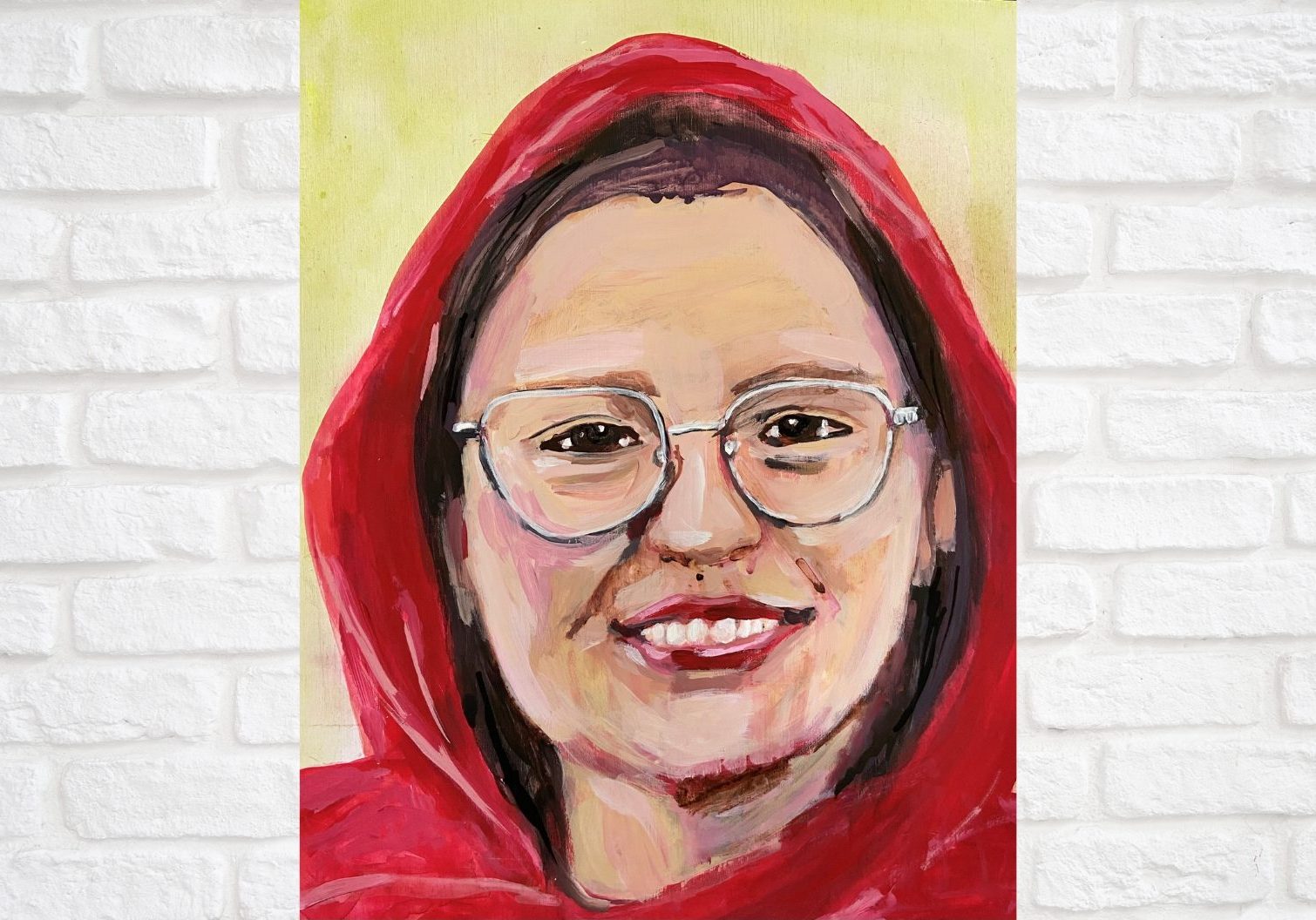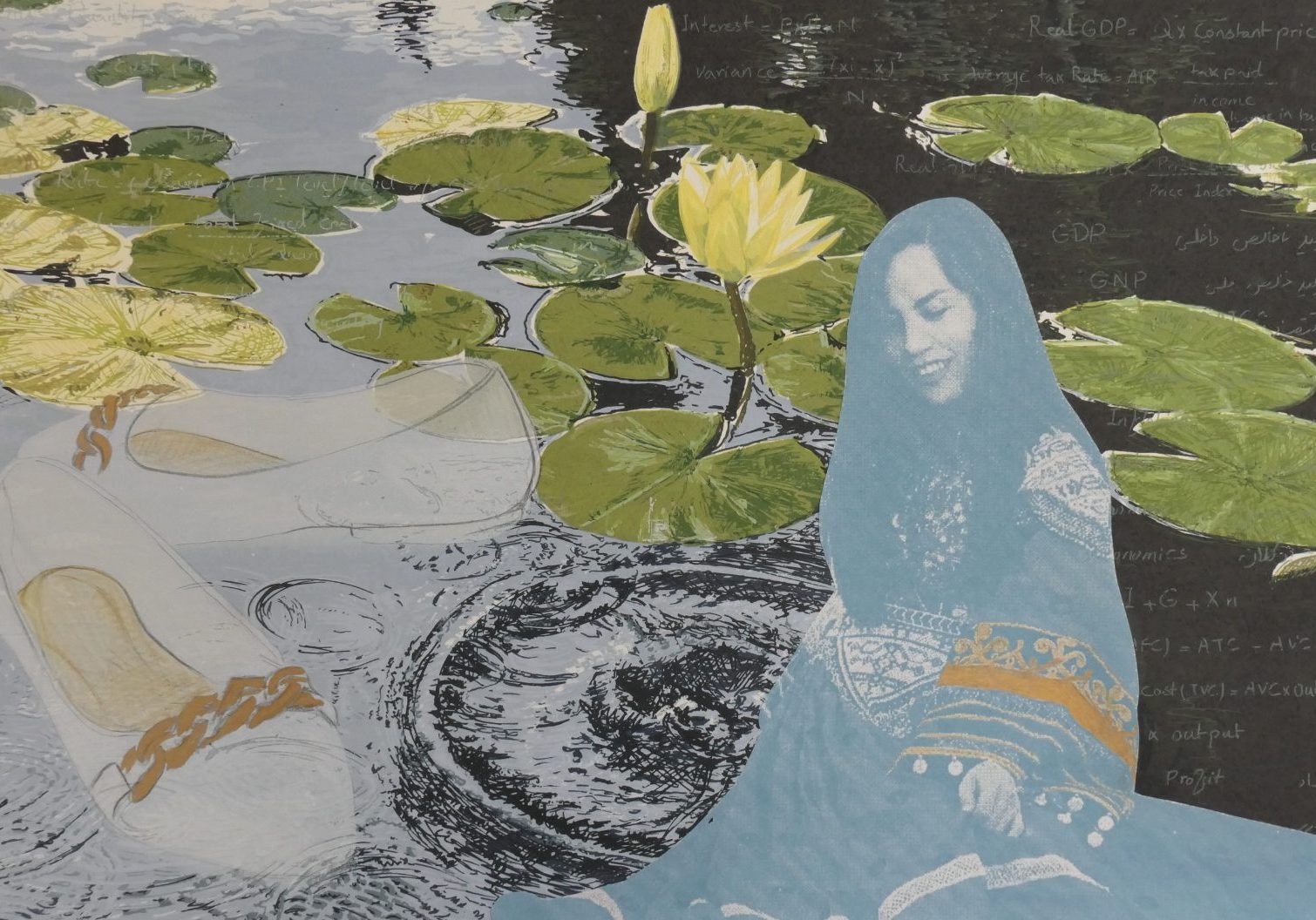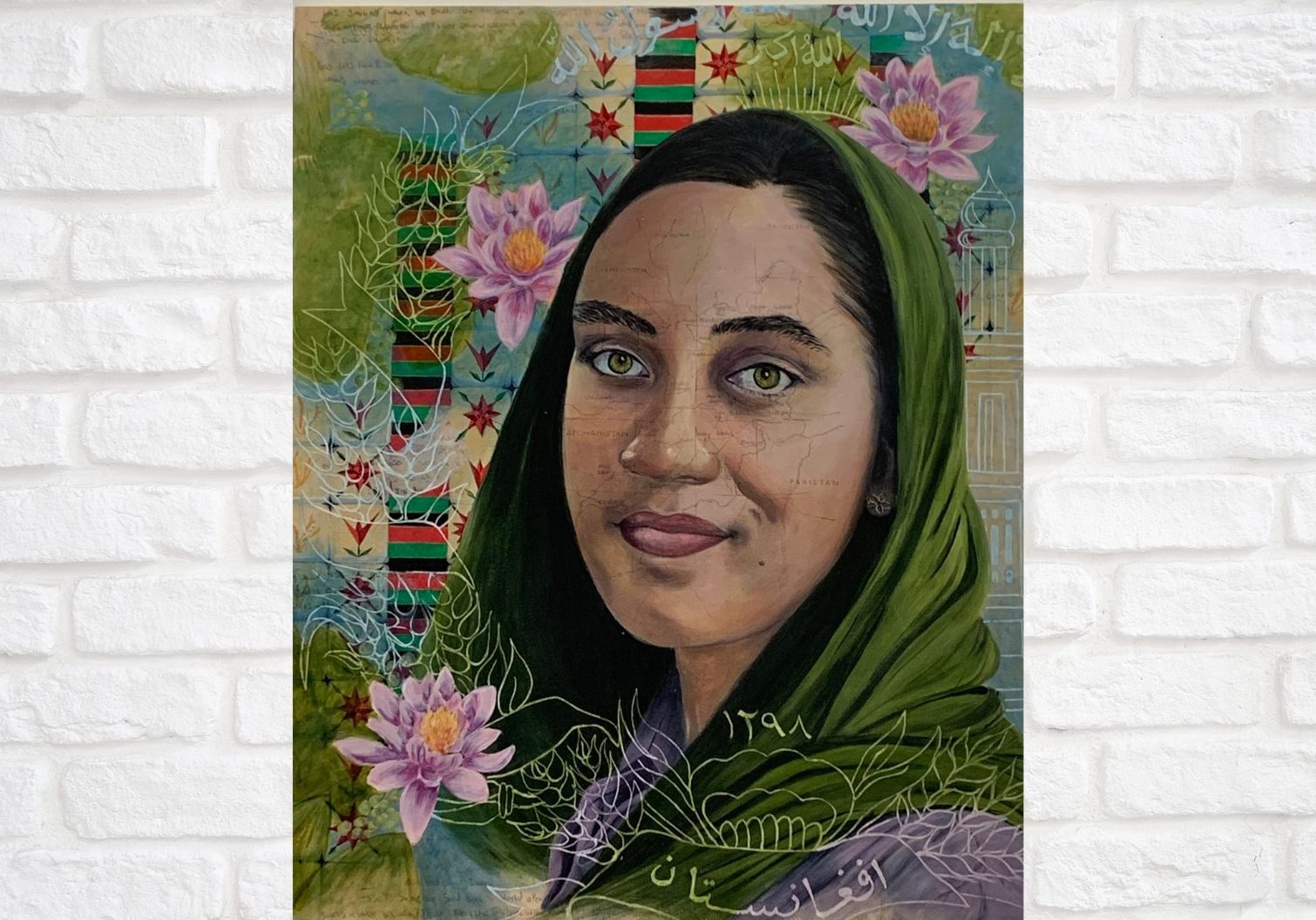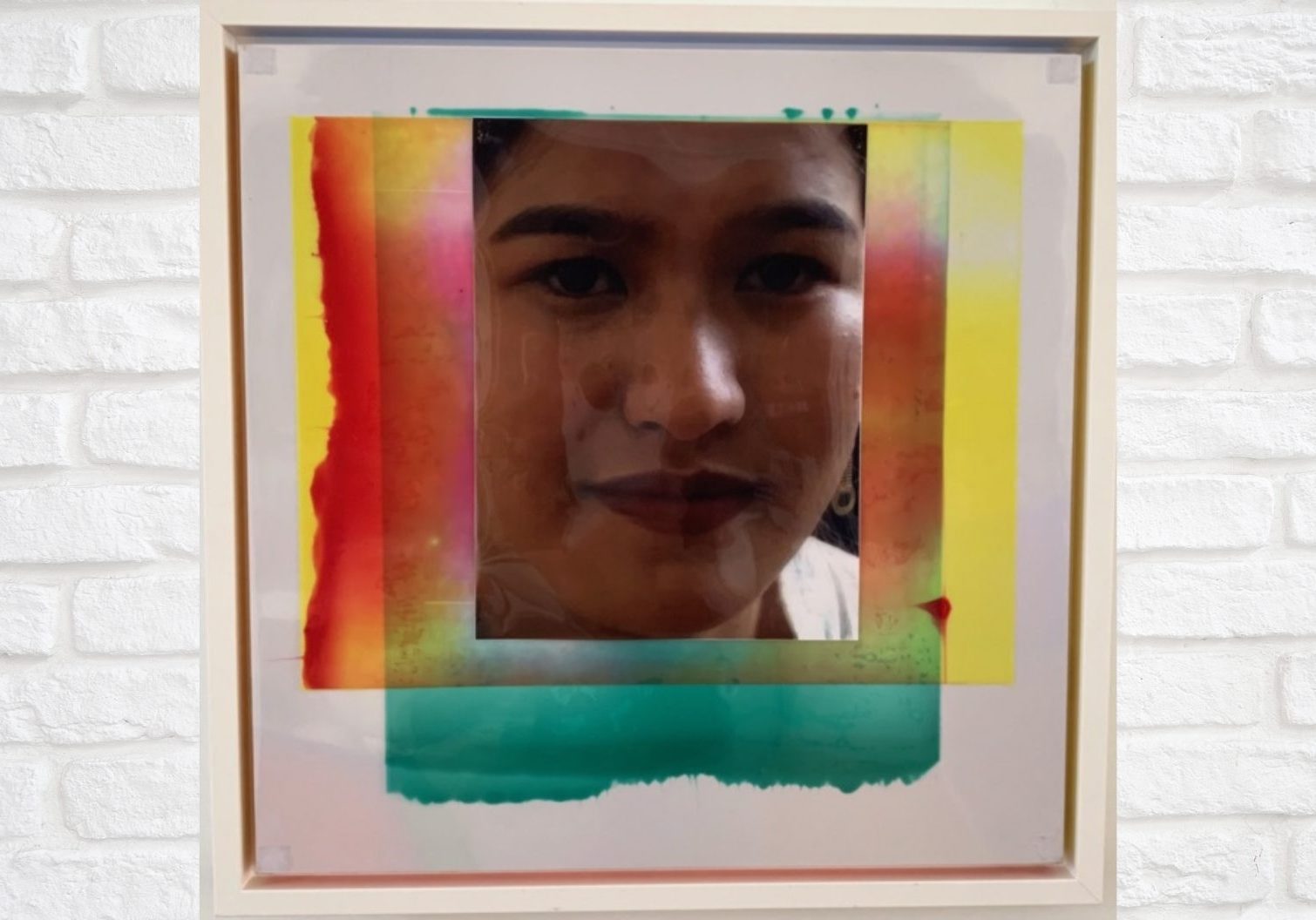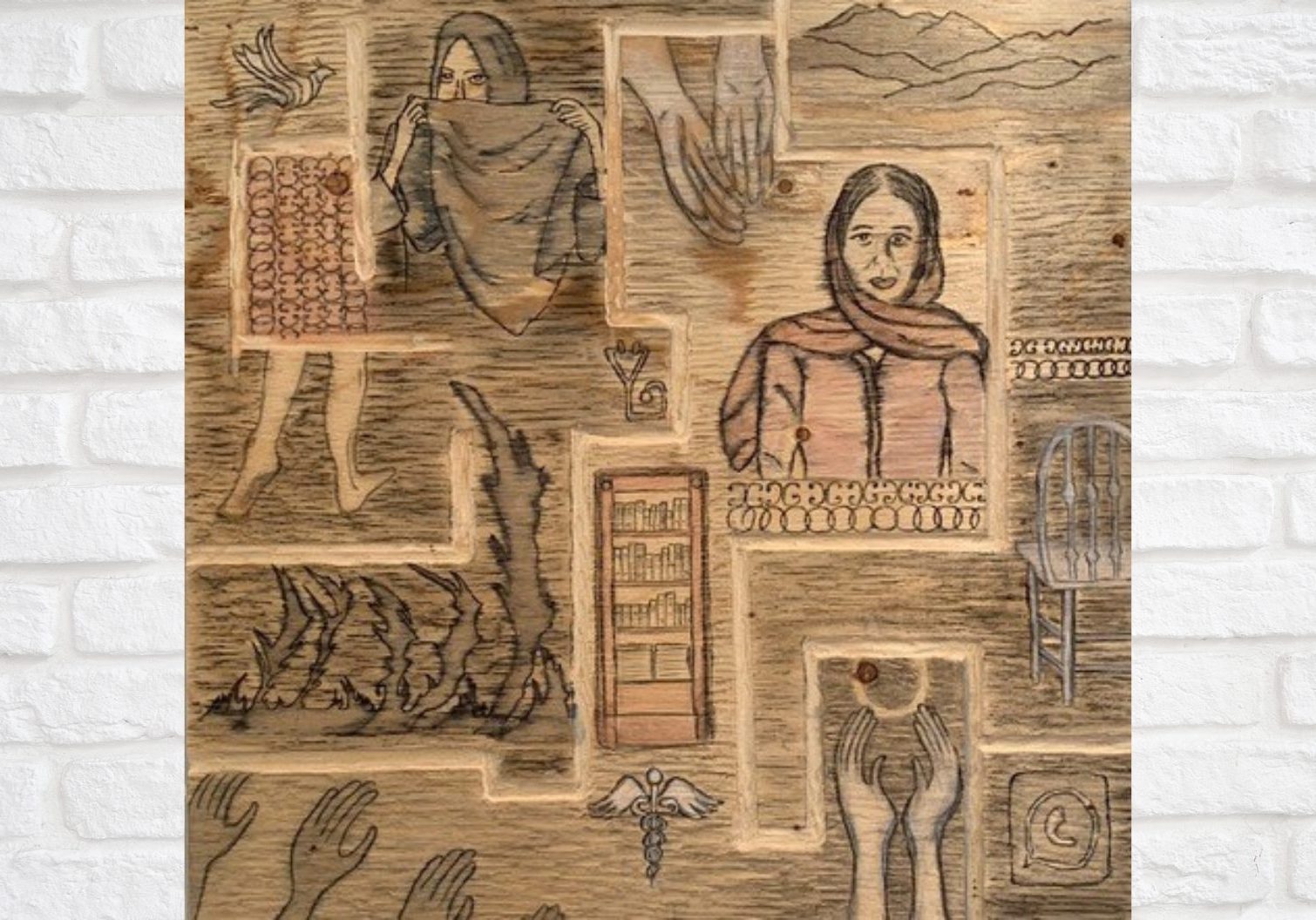The Journey with the Blue Burqa
The Journey with the Blue Burqa
Najia Ibrahimi
Summary:
While riding in a car through her beloved city of Kabul, a woman sees the streets from under an oppressive garment and reflects on her loneliness and helplessness as she makes her escape.
Story:
It was October 10, 2021, when my husband and I left home. I decided to wear my old black running shoes with white soles under a long orange dress. Those shoes were the best choice. Since they would disguise the fact that I was a young woman, they’d help me cross the border. And they were definitely the most comfortable shoes that I had. Although blue represents the colour of the sea and the sky, my share of the blueness was just a blue burqa, a cage that could protect me when crossing the border. It was my mother’s blue burqa that I wore that day.
It was getting darker, like the upper part of my running shoes. For a woman who dreamed to make a nest in her motherland, the decision to leave was not easy. However, the motherland was wounded now, and it could not hold my nest in her branches. The moment that I took the first step to leave, I felt the softness of the sole of the shoe cushioning me. Yet for the sake of survival, I had to leave behind all the proof of my educational and professional achievements in case the Taliban might find the documents on me. However, without them, how could I regain my dreams elsewhere? We put our suitcases in the back of a Toyota Corolla, and with our hearts full of pain, we departed.
I was sitting behind the hired driver and beside the window. I did not cover my face. Why should I?! I wanted to see the city that I grew up in, the place where I laughed and cried for the first time, and maybe for the last time, as I was not sure if I could safely cross the border. However, the first sight of a Taliban militant prompted me to pull down the niqab of the burqa to conceal my face.
Observing my city through mesh fabric was uncomfortable, but no freedom of choice was left for me. Oppression, not human rights, defined everything.
I felt awful as the car got closer to the centre of the city. More Taliban men were on the streets. They could stop the car and ask where we were going at that time. I caught glimpses of the streets that I used to take to the office every day. I enjoyed every single moment of being alive then, even though I never knew when it would be my turn to die in a terrorist bombing one day. In the middle of the chaos and helplessness, I knew what it meant to survive these dangers and to have more time to breathe and live.
Twenty minutes passed. I felt suffocated under the niqab. I wanted to shout loudly so that our male-dominated society and the Taliban would know that I am against oppression. Let me breathe at least, for God’s sake! I was overwhelmed with guilt, loneliness and helplessness. I desperately wished I could do something for the people who were left behind. I wished they all had life-saving shoes, too, that could take them to safety.
I felt useless, helpless. I realized that I could not do anything for anyone, including myself. The Taliban could shoot at any moment along the way. My story would finish without a climax, and I would become a number, a statistic, instead of a living being who had experienced death.
Oh! It is so sad. I need the chance to tell my story to the whole world even if it’s the experience of death.
Najia Ibrahimi is a Hazara girl from Afghanistan’s Ghazni province. She was living in the capital, Kabul, when it fell into the hands of the Taliban. She is interested in writing stories in Dari and English. Therefore, she joined The Shoe Project.

